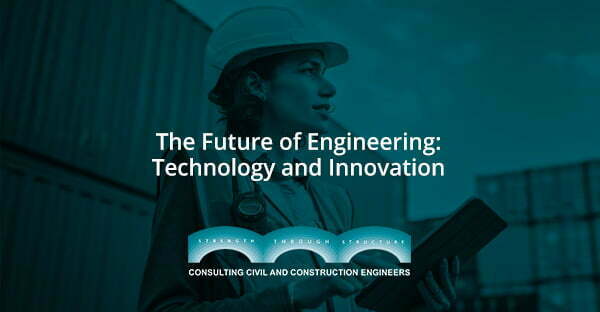Engineers will continue to play a significant part in society as time goes on because their pitch has always been at the cutting edge of innovation and technology. The ongoing development of cutting-edge technologies like artificial intelligence (AI), 5G, the Internet of Things (IoT), and quantum computing will mostly drive new advancements in engineering.
The growing application of AI and machine learning in engineering is one of the most important trends. Healthcare, transportation, and the financial sector are just a few of the industries that these technologies have already altered. The development and improvement of these technologies to increase their potency and effectiveness will heavily rely on engineers.
Another area where engineering is anticipated to have a significant impact in the future is the development of smart cities. Because of the advancement of IoT and 5G, we are moving closer to a world where everything is connected, from our homes and workplaces to the transportation networks we use every day. Engineers will develop and implement the energy systems, transportation networks, and communication systems needed to sustain these smart cities.
Finally, engineers will be at the forefront of innovation in the field of quantum computing. Engineers are attempting to create the hardware and software necessary to make quantum computers a reality because they promise to resolve issues that are currently impossible to handle with conventional computing. The globe in the years to come could be significantly impacted by this technology, which has the potential to change everything from medication discovery to climate modelling.
With new technologies fostering innovation and new developments in fields like artificial intelligence, smart cities, and quantum computing, Engineering Sydney knows the future of engineering is bright. Engineers will be essential in the creation of the infrastructure that will support these technologies as well as their development and improvement. Engineering’s future looks to be both exciting and demanding, with new possibilities for growth and innovation.
Shaping The Future
Because of emerging technologies like artificial intelligence (AI), robotics, 3D printing, blockchain, and the Internet of Things, engineering is undergoing a rapid shift (IoT). Here are some future engineering trends that these technologies are influencing:
Automation: AI and robotics are revolutionising the manufacturing industry by automating a range of tasks that were previously carried out by human labour. This boosts output while reducing the risk of accidents and injuries at work.
Design and prototyping: The ability to develop new product prototypes rapidly and affordably thanks to 3D printing enables engineers to test and improve their concepts more quickly. Besides producing personalised goods on demand, this technology is also utilised to manufacture prosthetics and medical implants.
Intelligent infrastructure: Everything is connected via the Internet of Things (IoT), from homes and companies to transportation networks and social infrastructure. Engineers are utilising this technology to design smart cities that are more efficient, sustainable, and responsive to the needs of their residents.
Data analytics: Engineers now have more access to data than ever before thanks to the widespread use of sensors and other data-gathering equipment. They can examine this data using advanced analytics tools to look for patterns, trends, and anomalies that will help them boost the efficiency and dependability of their systems.
Security: As more systems and devices are connected to the internet, it is becoming more crucial to safeguard and protect data and transactions. Blockchain technology is being used to do this. New security measures are being created by engineers to keep up with the continuously changing threat landscape.
Emerging technologies are transforming the engineering industry by enabling automation, advancing design and prototyping, creating intelligent infrastructure, enabling data analytics, and enhancing security. The acceleration of these trends in the coming years will probably make engineering’s future even more exciting and challenging.

The Future: AI to 3D Printing
Due to a number of cutting-edge technologies, such as 3D printing and artificial intelligence, engineering practice is already evolving. The following noteworthy events are anticipated to have a big impact on the engineering sector in the next years:
Artificial intelligence (AI): AI has many applications that are already in use, including voice recognition, image recognition, and natural language processing. Several industries, including healthcare and transportation, stand to benefit from AI.
Robotics: Industry, healthcare, and other economic sectors already employ robots. They will surely become more complex as technology develops. In the future, everything from space travel to disaster relief may require robots.
The manufacturing, healthcare, and other industries may be significantly impacted by the production of customised goods and prototypes utilising 3D printing. Future applications of 3D printing could involve the creation of complete structures and organ replacements.
In addition to games and other forms of entertainment, engineering, medicine, and education may one day make use of virtual reality (VR) and augmented reality (AR).
Currently, everything is connected via the Internet of Things (IoT), from automobiles and homes to office equipment and governmental infrastructure. As the Internet of Things expands, everything from logistics to energy management might undergo a transformation (IoT).
Cutting-edge technologies like AI, robotics, 3D printing, AR/VR, and the IoT will probably have a big impact on engineering consultants, providers and the sector as whole in the future. Because they have the power to fundamentally alter how we design, construct, and use systems, engineers will be crucial in making these insights a reality.
The Benefits of the Future of Engineering
Many advantages will come from engineering’s role in technology and innovation in the future, both for society as a whole and for particular businesses and organisations. Here are a few of the main advantages:
Improved efficiency
Emerging technologies such as AI, robotics, and the IoT are making it possible to automate many tasks, improving efficiency and reducing costs in industries ranging from manufacturing to healthcare.
Enhanced safety
By automating dangerous or repetitive tasks, robots and other technologies can help reduce the risk of accidents and injuries in the workplace.
Greater customisation
3D printing and other technologies are making it easier and more affordable to produce customised products, from medical implants to consumer goods.
Increased innovation
By making it easier to prototype and test new products and systems, emerging technologies are driving innovation in fields ranging from aerospace to renewable energy.
Improved data analysis
Engineers are now able to make more informed judgments and enhance the performance of their systems thanks to the development of sensors and other data-gathering devices.
Better sustainability
By reducing energy use and greenhouse gas emissions, smart cities and other sustainable infrastructure initiatives are paving the way for a more sustainable future for everybody.
In summary, the engineering of the future in technology and innovation offers a variety of benefits, including enhanced customisation and creativity as well as increased efficiency and safety. These benefits have the potential to transform entire sectors and improve living conditions for everyone.
In conclusion, a wide range of cutting-edge technologies, such as AI, robotics, 3D printing, AR/VR, and the IoT, are shaping the future of engineering. These technologies have the potential to fundamentally alter how we create, maintain, and use systems. They will also have a significant positive impact on society by enhancing efficiency, safety, personalisation, creativity, data analysis, and sustainability. Engineers will be instrumental in creating and implementing these technologies as they evolve and advance, advancing technology and raising the standard of living for people all around the world.

